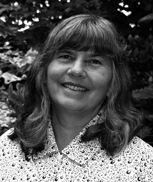The water babies class was proceeding noisily. I watched my little granddaughter splashing around happily with her dad. Neither holy Scripture nor world economics was at the forefront of my mind. I was just intrigued by the fact that it is possible to teach very young children to swim, because actually they already know how and have not yet learned about fear.
The teacher did a little exercise with them that is worth reflecting on. In the middle of the pool was an inflatable platform. Each child in turn was invited to clamber up onto it. Clinging to their parent’s hand, they then staggered across it, discovering how wobbly the whole contraption really was. At the other side they then flopped back into the water. All this to the accompaniment of nursery rhymes, of course.
I noticed, first, how eagerly the children climbed up onto the island refuge in the middle of the pool and how quickly they realized that it was not as solid as it looked; then how they fell back into the water and discovered that it really would hold them up. I thought of Jesus’ words about the house built on rock and the house built on sand—wise guidance. But what if the things we think are rock turn out to be sand, and what we might dismiss as sand turns out, after all, to be rock? Those children thought the inflatable island was a rock. They soon found out how unstable it was and that the water was a more reliable support. Jesus, of course, constantly warned us that we cannot trust our own estimation of what is solid and what is not. Things are definitely not always what they seem.
Never in my lifetime have we been so brutally reminded of this as in the present economic downturn. The first indicator of the slide into recession in the United Kingdom came two years ago with the fall of the financial institution Northern Rock. Many people had built their houses on that particular rock. It turned to sand beneath their feet. Now the rock of market forces is turning to quicksand all around the globe. We have stored up treasure for ourselves in barns where the moths of irresponsible lending and the rust of unregulated profiteering have gotten in and destroyed it.
As I watched those little children in the pool, I asked myself: “Why are they able to let themselves plunge into the water so fearlessly and risk its depths?” The answer was obvious. Each of them was close to a loving parent, who was only waiting to catch them, hold them, embrace them, praise and encourage them. Not one of them had yet experienced any reason to move through the world with anything but perfect trust. It would be easy simply to draw the conclusion that all we need to do is trust God as we flounder in the quicksand of recession. That may be easily said, especially on a Sunday morning, but not so easily trusted when Monday comes. Those children trusted their parents because they had never had cause to doubt that trust. Most of us, sadly, cannot say that about life. The words “trust in God” have to go way beyond the creedal statements; otherwise faith becomes little more than an inflatable island. We feel the wobbles, in spite of what we profess.
The God who was holding those children safe was not coming down from heaven on a pink cloud but was holding them through the arms of their parents. And that, perhaps, is the secret of how we actually allow God’s love and rock-like solidity to become incarnate in our very unstable world. We are called, challenged and empowered to extend this kind of loving hold to each other. God has no arms but ours in which to hold God’s people.
The challenge of our day is not just economic but spiritual. Can we be to others the rock of love, trust and support that Jesus models for us? It sounds as flimsy and unlikely as the ripples on the pool, but in the end it is the water, not the artificial platform, that provides the buoyancy.
God asks us to provide that base of trust for each other in our everyday dealings—to be a ripple on the ocean of God’s love. It is not an esoteric mystery. How to do it is clearly spelled out for us in the life and death of Jesus. It is not something to be left solely to our governments. The potential for personal trustworthiness lies within each of us. We are simply asked to let it grow and show. And historically, there is no more opportune time to discover the power of mutual trust, support and love than when our man-made platforms are sinking.








